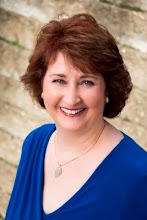I would love to say I inject humour into all my writing but that just isn’t so
because I find writing humour incredibly difficult. It isn’t that I don’t have
a sense of humour. I do but, as I tend to be a visual person, ie: I learn best
by seeing and doing, it follows that I find visual humour, such as slapstick
comedy, the funniest. That is not easy to write and if humour does find its way
into my writing, it’s more by accident than design.
Being funny, and humour
as a whole is subjective. I remember a movie from the early 80s called ‘The
Gods Must Be Crazy.’ Very briefly, a Kalahari bushman encounters civilization
and its stranger aspects. It was a low budget of $2.5 million South African film, which netted about $20 million. I couldn’t stop laughing at it, my kids barely
cracked a grin. Another movie which I found funny and fortunately they did, too, was 'Start the Revolution Without Me,' starring Donald Sutherland and Gene Wilder as two pairs of identical twins, one aristocratic (The Corsican Brothers) and the other set poor. As France is about to be torn apart by the revolution, both become victims of royal plots.
So, what is humour? Like
the example above, what one person finds funny another won’t. It’s a bit like
beauty being in the eye of the beholder. Humour is defined in Webster’s dictionary as
having the quality of being amusing or comic. Wit, on the other hand, is
defined as having a natural aptitude for using words and ideas in a quick and
inventive way to create humour. Forms of wit include the zinging one-liners aka
Violet, the Dowager Duchess of Grantham in Downton Abbey. Other forms of humour
can be satirical, self-deprecating, surreal, or plays on words as this by John
Lynn: his legacy will become a pizza history.
But in every instance,
I come back to the slapstick comedy routines favoured by Victorian music hall
and vaudeville audiences everywhere. These I remember, not from personal
experience (I'm old but not that old!) until the advent of BBC TV’s series The Good Old Days, but from
hearing my aunts and uncles talk about them and sing songs when I was little.
One of my father’s favourite acts, Wilson, Keppel, and Betty, did a sand dance
routine and they still make me laugh. You can check them out here: https://www.youtube.com/watch?v=Sn83cCEpZV0
Before we had a TV in
the house, we listened to radio programs such as Hancock’s Half Hour, Round the
Horne, and Much Binding in the Marsh. Later there were TV programs with the
comedy duo of Eric Morecambe and Ernie Wise, Fawlty Towers and Monty Python. These
were all the English programs but I Love Lucy and the Carol Burnett Show were
amongst my favourite classic comedy shows. Who could ever forget Carol Burnett's priceless performance as Scarlett O'Hara?
And then, of course,
there is humour of Donald McGill’s classic but saucy English seaside postcards of the 50s and 60s. They
were risqué humour at best but that didn’t prevent one of his postcards,
featuring a bookish man and an embarrassed pretty woman sitting under a tree,
with the caption: "Do you like Kipling?" / "I don't know, you naughty boy, I've never
kippled!", holds the world record for selling the most copies, at over 6
million. (source: Wikipedia.) That was the upside. The downside was a police
raid on stores in Ryde, Isle of White, confiscating 5,000 of his postcards for
indecency.
I love reading books
that make me laugh out loud. Elizabeth Dearl’s Diamondback and Stuart J. West’s
Zac and Zora series are recent reads that did exactly that. They are the
positive side of humour. The negative side of humour is about deriding,
belittling, demeaning and ridiculing which are all aspects of bullying and there is nothing
funny in that.
I find it impossible to
write about the scenes that make me laugh. What I think I do manage from time to
time, is more wit than humour. I can only hope my readers agree.
Victoria Chatham
















































.jpg)



.jpg)


